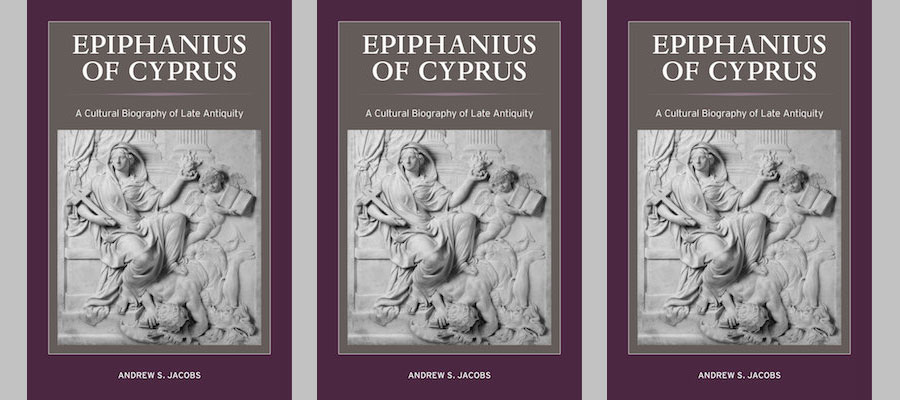Noting that Epiphanius, a tenacious heresiologist, is one bishop most scholars of ancient Christianity would prefer to ignore (or at least not include in the company of Augustine or Basil of Caesarea), Jacobs explores his undeniable importance to his contemporaries through categories not always found in their holy vitae: celebrity, conversion as creating social boundaries, scripture as an antiquarian treasure house, salvation as necessarily corporeal, and sanctity as social transgression. Through these lenses Jacobs argues that contentious Epiphanius embodies ancient Christian sensibilities, which challenges the current, and perhaps complacent, narratives of religious change in the Anglophone sphere of late antique studies.
Andrew S. Jacobs. Epiphanius of Cyprus: A Cultural Biography of Late Antiquity. Christianity in Late Antiquity 2. The University of California Press, 2016.
From Bryn Mawr Classical Review (BMCR). Review by Rebecca Lyman, The Church Divinity School of the Pacific
